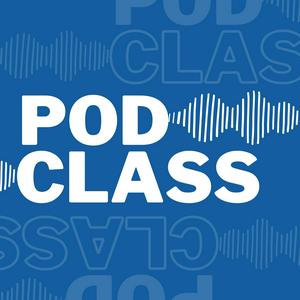#23 - The One About Why Rewards Don't Work
Welcome back to Podclass! In this episode, Amanda, Skye, and Wil dive into the often-debated topic of rewards in education. Why do we use them so much? Do they actually work? And what’s the real cost of relying on rewards to motivate young people? By sharing classroom anecdotes, personal stories, and proven strategies, they explore how rewards can sometimes undermine genuine learning—and what we can do instead to foster intrinsic motivation and curiosity in our students.
1. The Carrot and Stick: Why We Use Rewards
Rewards and Punishments in the Classroom
The team kicks off the conversation by breaking down the widely used "carrot and stick" approach, where rewards encourage behavior and punishments deter it. While this method might work in the moment, Amanda explains how it’s a short-term solution that doesn’t foster lasting motivation or learning.
They explore why this model can be problematic:
Rewards make learning feel transactional.
Punishments, or the removal of rewards, can feel manipulative.
It shifts focus away from curiosity and growth to “just getting it done.”
“When the carrot is gone and the stick is gone, what motivation is left in the student?” – Amanda
2. The Hidden Costs of Reward Systems
Why Rewards Wear Off Over Time
As the episode continues, Sky highlights the hidden downsides of rewards:
Satiation: Over time, rewards lose their appeal, requiring bigger incentives to achieve the same result.
Lost Focus on Learning: Students often prioritize finishing tasks to earn a reward, rather than understanding the material or engaging in meaningful learning.
Manipulation and Conditional Motivation: Relying on rewards can undermine autonomy and create a dependency on external validation.
Skye shares a teaching experience where using stickers to motivate her class backfired. The students became more focused on earning the stickers than on improving their writing or engaging with feedback.
“Rewards teach students to aim for the finish line, not to value the journey of learning.” – Skye
3. Building Intrinsic Motivation in the Classroom
Shifting from Rewards to Effort-Based Recognition
The team shifts gears to explore what works better than rewards. They share actionable strategies for fostering intrinsic motivation, like:
Acknowledging Effort: Celebrate hard work and perseverance, rather than just the end result.
Creating Optimal Challenges: Engage students with tasks that stretch them slightly beyond their comfort zone, encouraging growth and resilience.
Tapping into Curiosity: Design lessons that align with students’ natural interests to ignite a deeper connection to learning.
Will shares a story about how the challenge of beating a tough opponent in chess kept him motivated far more than any external reward. Sky reflects on her childhood love of board games, where the thrill of improving her skills against her dad was its own reward.
“True fulfilment comes from the process, not the prize at the end.” – Wil
Conclusion
Rewards aren’t inherently bad, but they shouldn’t be the default strategy. Instead, educators can inspire students by focusing on effort, curiosity, and meaningful learning experiences.
Thank you for joining us for this week’s episode of Pod Class! Don’t forget to follow us for more deep dives into education, motivation, and connecting with young people. See you next week! 🎙️
Follow us on social media for updates:
Instagram: @podclass.aus
Websitehttps://ylaaus.com/podclass

